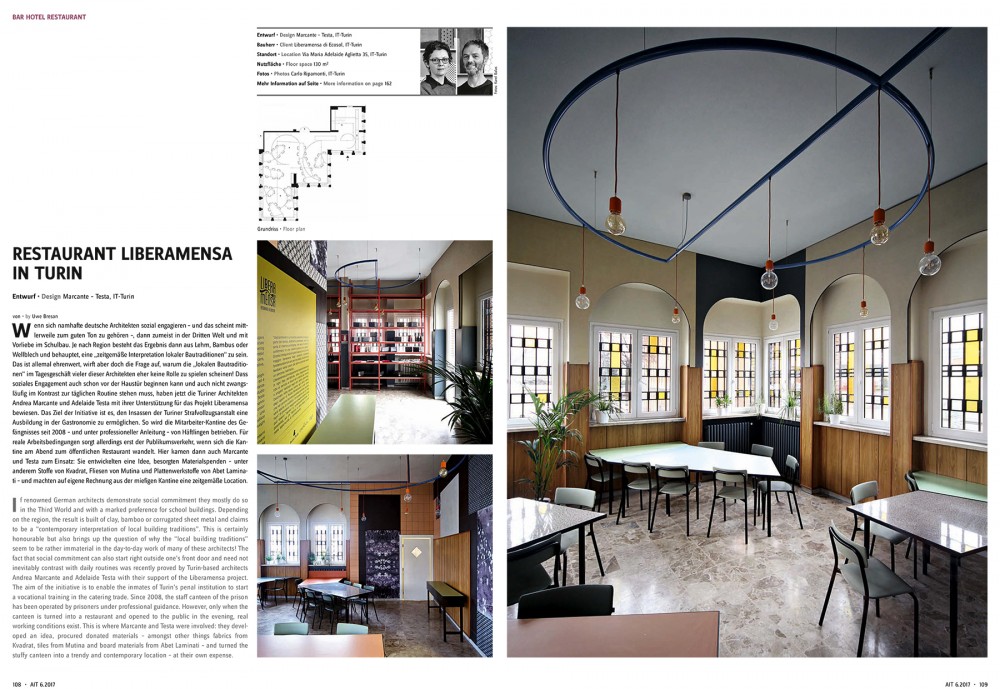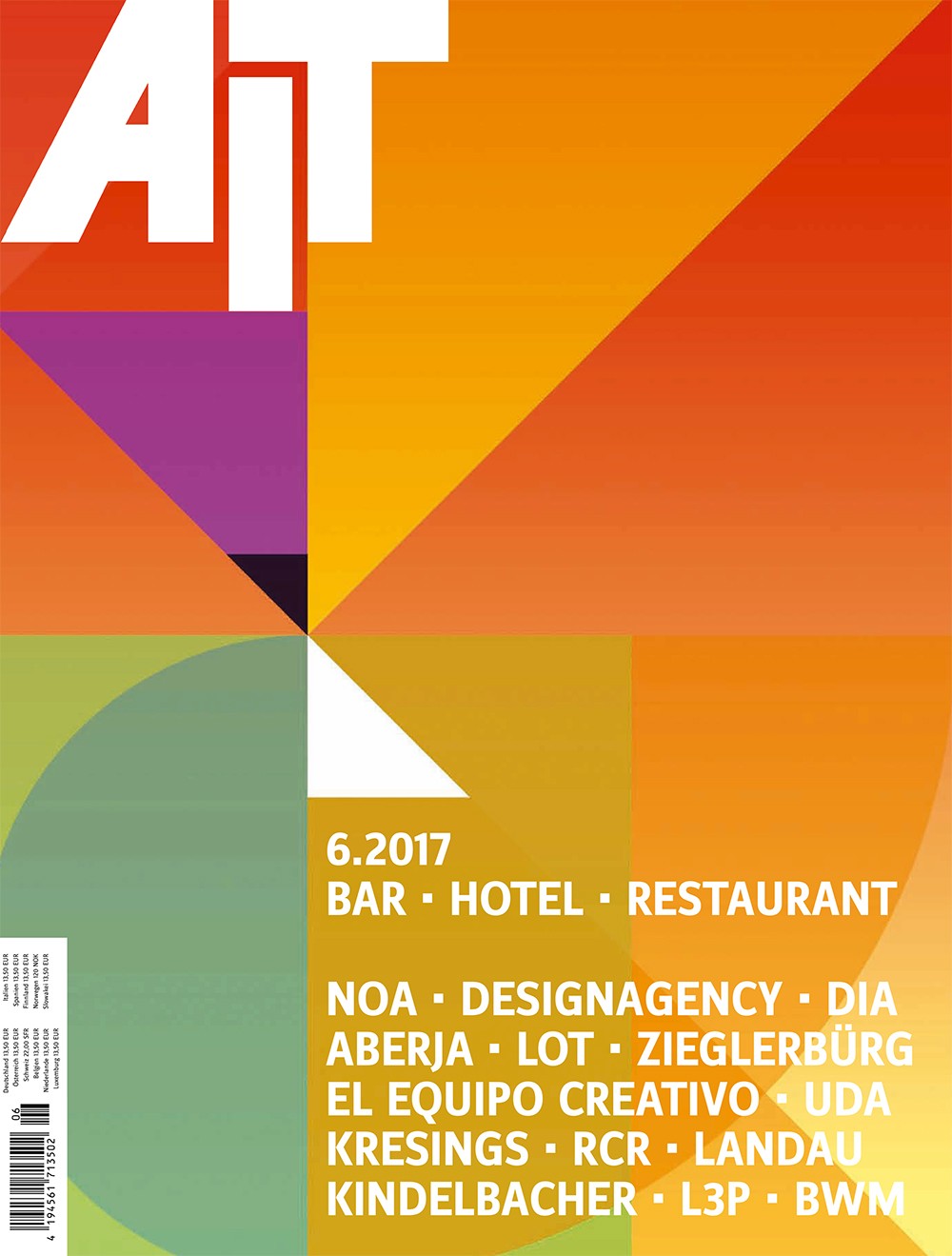“[…] The fact that social commitment can also start right outside one’s front door and need not inevitably contrast with daily routines
was recently proved by Turin-based architects Andrea Marcante and Adelaide Testa with their support of the Liberamensa project.”
“Liberamensa: design enters the prison” has been published by AIT Magazine – Germany, with an article by Uwe Bresan.


“If renowned German architects demonstrate social commitment they mostly do so in the Third World and with a marked preference for school buildings. Depending on the region, the result is built of clay, bamboo or corrugated sheet metal and claims to be a “contemporary interpretation of local building traditions”. This is certainly honourable but also brings up the question of why the “local building traditions” seem to be rather immaterial in the day-to-day work of many of these architects!
The fact that social commitment can also start right outside one’s front door and need not inevitably contrast with daily routines was recently proved by Turin-based architects Andrea Marcante and Adelaide Testa with their support of the Liberamensa project.
The aim of the initiative is to enable the inmates of Turin’s penal institution to start a vocational training in the catering trade. Since 2008, the staff canteen of the prison has been operated by prisoners under professional guidance. However, only when the canteen is turned into a restaurant and opened to the public in the evening, real working conditions exist. This is where Marcante and Testa were involved: they developed an idea, procured donated materials – amongst other things fabrics from Kvadrat, tiles from Mutina and board materials from Abet Laminati – and turned the stuffy canteen into a trendy and contemporary location – at their own expense.”
—————————————–
“Wenn sich namhafte deutsche Architekten sozial engagieren – und das scheint mitt -lerweile zum guten Ton zu gehören –, dann zumeist in der Dritten Welt und mit Vor lie be im Schulbau. Je nach Region be steht das Ergeb nis dann aus Lehm, Bam bus oder
Well blech und behauptet, eine „zeitge mäße Interpretation loka ler Bau tradi tio nen“ zu sein. Das ist allemal ehrenwert, wirft aber doch die Frage auf, warum die „lo kalen Bautraditionen“ im Tagesgeschäft vieler dieser Ar chi tekten eher keine Rolle zu spielen scheinen! Dass soziales En ga gement auch schon vor der Haustür beginnen kann und auch nicht zwangs – läufig im Kon trast zur täglichen Routine stehen muss, haben jetzt die Turiner Architekten Andrea Marcante und Adelaide Testa mit ihrer Unter stützung für das Projekt Liberamensa bewiesen. Das Ziel der Initiative ist es, den Insassen der Turiner Strafvollzugs anstalt eine Aus bildung in der Gastronomie zu er möglichen. So wird die Mitarbeiter-Kantine des Gefäng nisses seit 2008 – und unter professioneller Anleitung – von Häftlingen betrieben. Für reale Arbeits bedingun gen sorgt allerdings erst der Publikumsverkehr, wenn sich die Kantine am Abend zum öffentlichen Restaurant wandelt. Hier kamen dann auch Marcante und Testa zum Einsatz: Sie entwickelten eine Idee, besorgten Material spen den – unter anderem Stoffe von Kvadrat, Fliesen von Mutina und Plattenwerkstoffe von Abet Laminati – und machten auf eigene Rechnung aus der miefigen Kantine eine zeitgemäße Location.”


